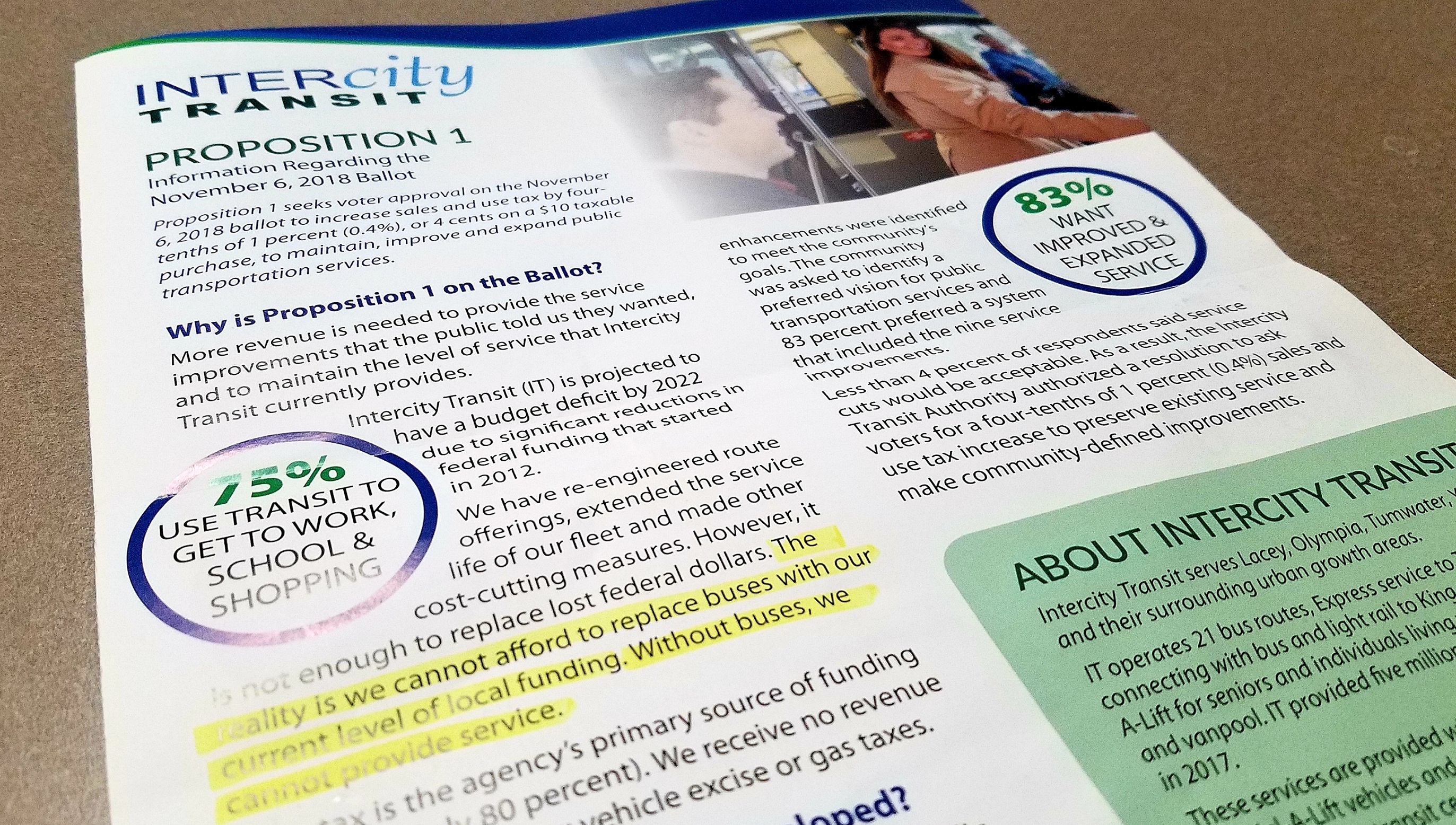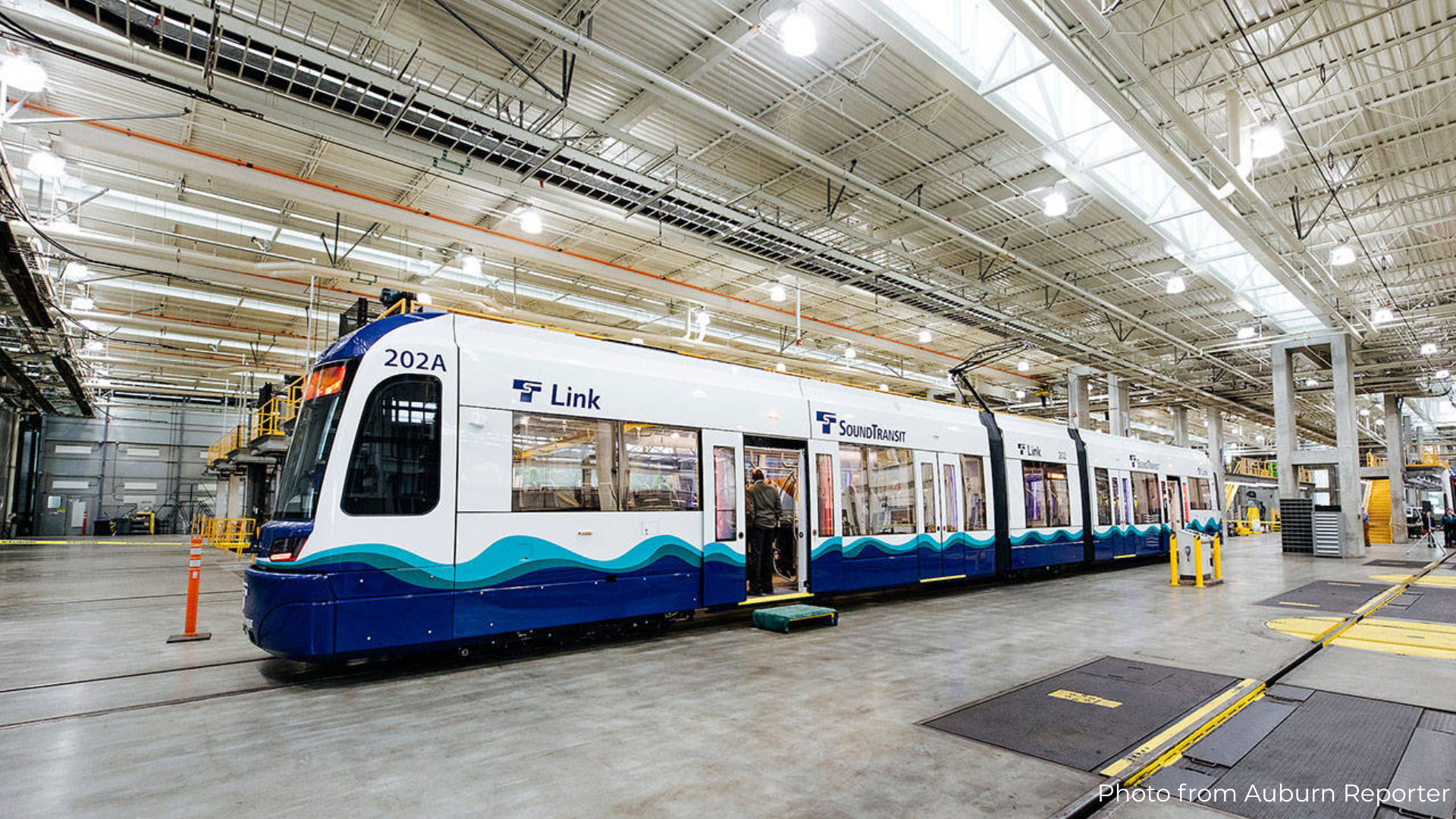Officials at Intercity Transit, a public transportation agency that serves people in Thurston County, are threatening to cut service by 15% if voters next week don’t approve a significant sales tax increase of 0.4%, or four cents on a $10 purchase.
In their Proposition 1 mailer, agency officials are planning a budget deficit by 2022 due to reductions in federal funding. They claim that they “cannot afford to replace buses with our current level of local funding.”
If the tax increase is approved, the agency expects to collect $16 to $20 million more annually in sales tax revenue and claims they will maintain current services, expand routes, and make capital and other improvements (including replacing their aging fleet of buses).
If the tax boost they want is rejected, transit officials say they will cut service by 15% in 2019, to get out of the deficit they are creating in 2023.
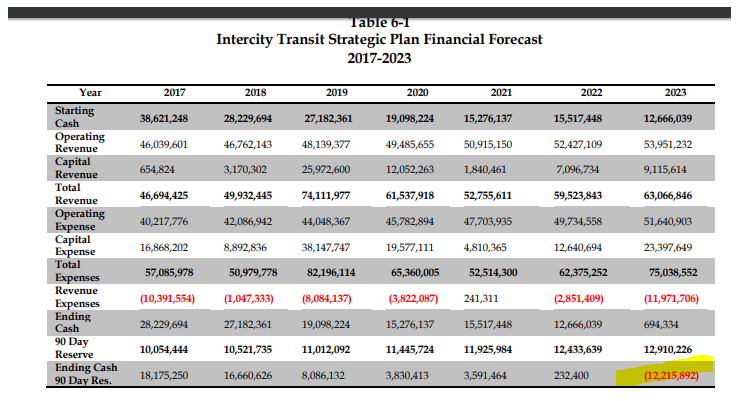
What officials are not telling voters, however, is that the service cuts may not be necessary to balance their budget.
If the proposition is rejected, the agency still expects to collect 16% more in sales tax revenue in 2022 than in 2017, under the sales tax burden they are already imposing.
 Notably, the agency is collecting record sales tax revenue and still asking for more money, even as total ridership has declined 15% since 2012.
Notably, the agency is collecting record sales tax revenue and still asking for more money, even as total ridership has declined 15% since 2012.
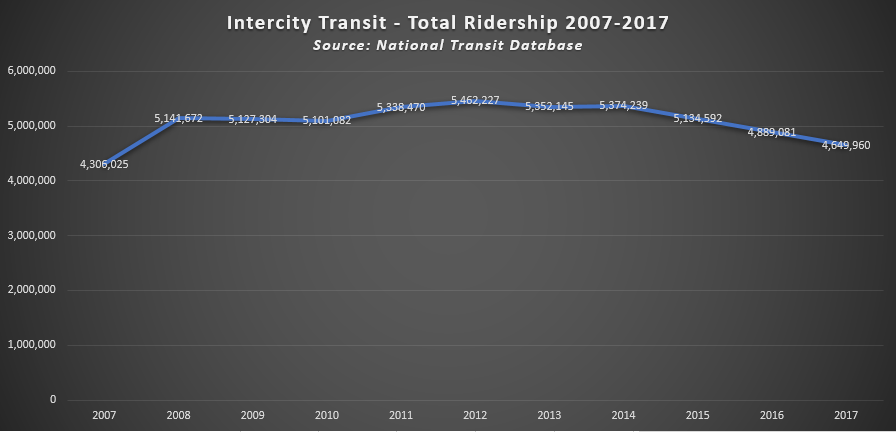
Further, agency officials claim they cannot afford to replace buses with current increasing levels of local funding. “Without buses, we cannot provide service,” they add.
From their 2017-2022 strategic plan:
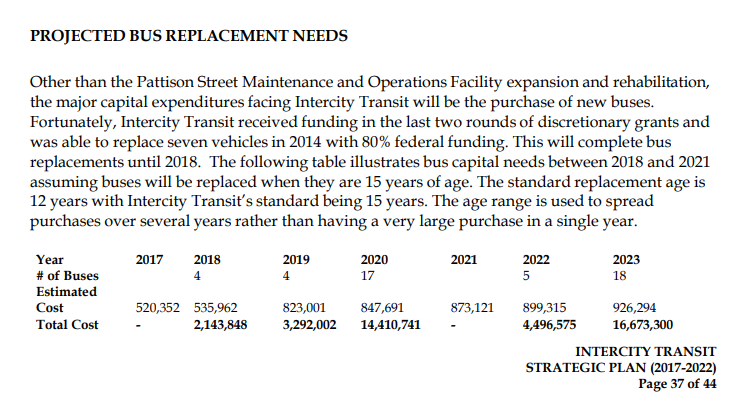
What transit officials are not telling voters but what we see in their strategic plan is that they are choosing to replace conventional buses with much more expensive hybrid coaches. Using their own numbers from the 2017-2022 Transit Development Plan, we calculated that Intercity Transit officials could save $12.7 million and likely balance their budget if they choose to buy regular buses instead. No service cut may be required.
Forecasting financial trouble and threatening service cuts to people who depend on Intercity Transit for mobility and already pay high sales taxes seems dishonest, given some of the agency’s cost-saving options.

